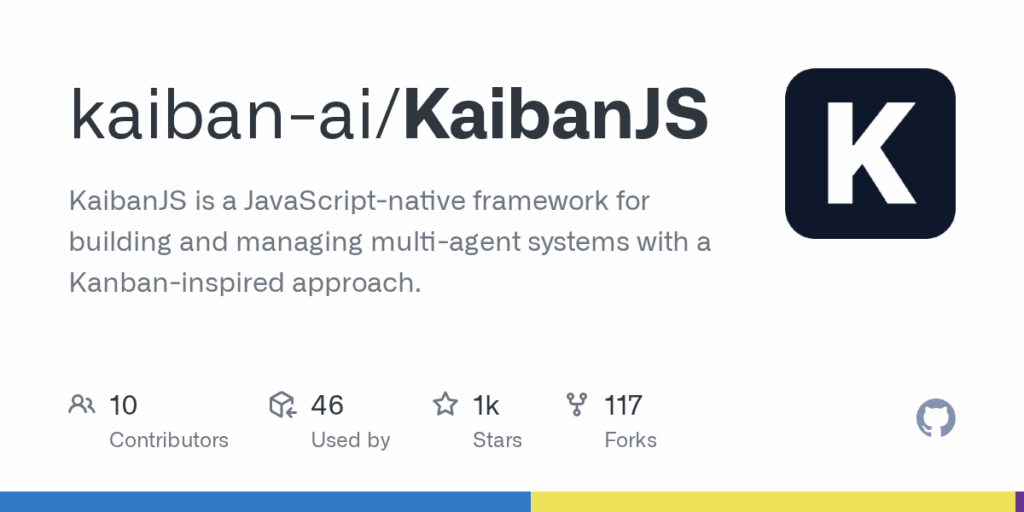KaibanJS
Basic Information
KaibanJS is a JavaScript-native framework for building, orchestrating, and visualizing multi-agent AI systems using a Kanban-inspired workflow. It is designed to let developers create autonomous agents, define tasks and teams, and run coordinated workflows in Node.js and browser environments. The project provides both a visual Kaiban Board for real-time observation and a programmatic API with core primitives like Agent, Task, and Team so teams can run agent workflows without a UI. The README documents a quick start using an initializer, manual installation via npm, and example code that shows how to configure agents, tasks, and environment keys. KaibanJS targets JavaScript developers who want a first-class, framework-native way to manage agent roles, pass results between steps, and integrate different LLM providers into orchestrated multi-step processes.








